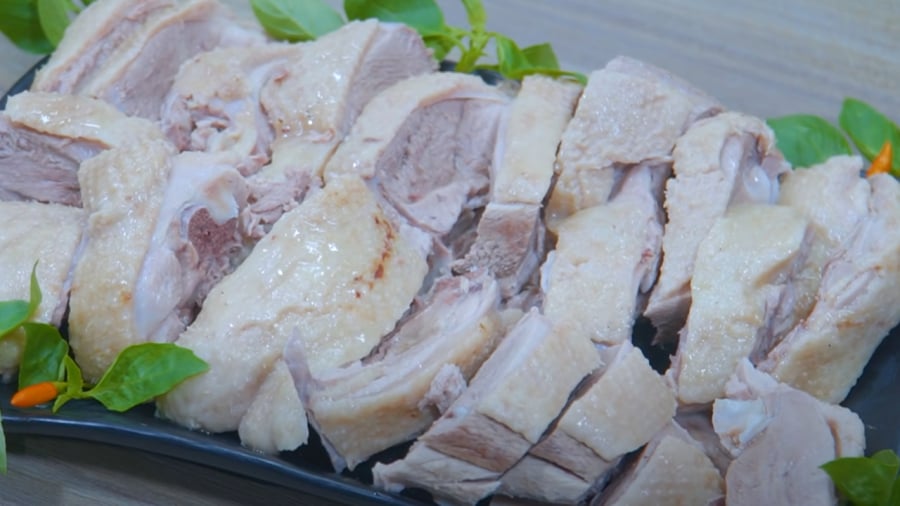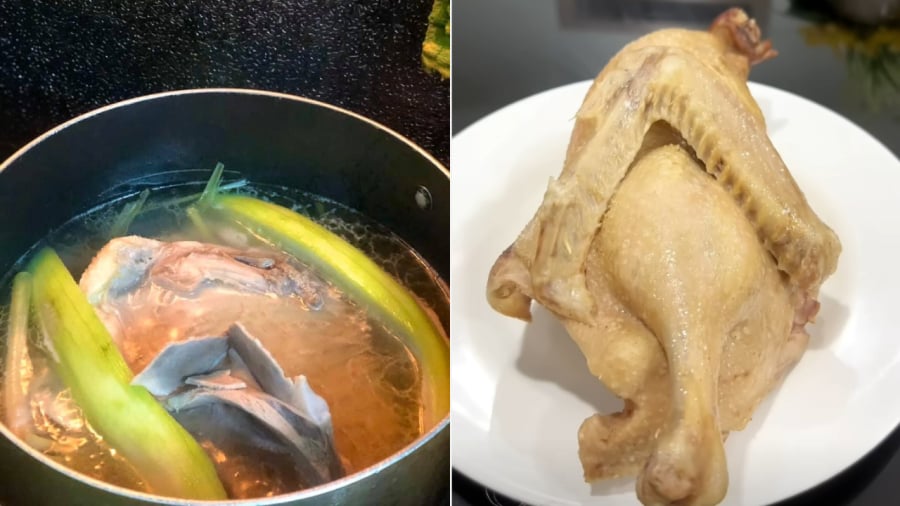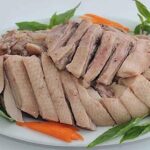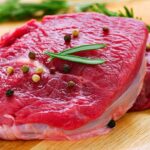Roasted duck is a simple dish, beloved by many. The tender duck meat pairs perfectly with a dipping sauce made from fish sauce or soy sauce. You can also use roasted duck meat in other dishes such as duck noodle soup or duck salad.

Roasted duck is a rustic dish, a favorite among many.
When roasting a duck, one of the most common issues people face is the meat developing an unpleasant odor, affecting its taste. This can be caused by various factors, such as improper duck selection or inadequate preparation techniques.
To ensure your roasted duck doesn’t have this issue and has tender meat, try the following tips.
Selecting the Right Duck
Younger ducks tend to have a stronger fishy odor and their meat is often softer and less appealing. On the other hand, older ducks have tougher meat. The sweet spot is to choose a duck that is just mature enough, around 60-80 days old. Look for a duck with a rounded chest, smooth feathers, long wings, and wingtips that cross each other under the tail. Additionally, check the duck’s feet for a soft, thin callus on the underside.

Before roasting the duck, make sure to prep it thoroughly to eliminate any unpleasant odors.
Duck Preparation
A folk technique to reduce the odor is to give the duck a small amount of white wine or lemon juice before slaughtering it. Pluck the duck’s feathers thoroughly.
It’s recommended to remove the duck’s crop, as it contains bacteria-laden fluids that contribute to the odor.
Use salt and lemon to scrub the entire duck, removing any dirt and neutralizing odors. Alternatively, you can use white wine and crushed ginger for this process, ensuring you remove the dark areas inside the duck’s pores after plucking.
Proper preparation is key to ensuring the duck tastes delicious and doesn’t have any unpleasant odors.
Spices for Roasting Duck
Typically, ginger and lemongrass are used to season the duck. Duck meat is considered cooling in nature, so adding warming ingredients like ginger and lemongrass helps balance the dish. These spices also add a pleasant aroma and reduce any fishy smell.
You can also season the duck with a pinch of salt, onion, and white wine to enhance its flavor and make it more savory.
A little-known ingredient that adds sweetness and fragrance to the duck is loofah. Including this in your recipe will take your roasted duck to the next level.
Additionally, consider using coconut water instead of regular water when roasting the duck. The coconut water and grated coconut add a natural sweetness and richness to the meat.
Notes on Roasting Duck
When roasting a chicken, it’s common to start with cold water, as chicken skin is delicate and can tear easily with temperature changes. However, duck skin is thicker, so wait until the water is warm (just starting to bubble) before adding the duck to the pot.
You can use the water from 1-2 coconuts to roast the duck, along with just enough regular water to fully submerge the duck. This ensures even cooking and prevents discoloration. Once the water is warm, add the duck, ginger, lemongrass, onion, salt, and wine to the pot, along with some thinly sliced grated coconut if desired.
When the water boils, reduce the heat to a low simmer to ensure the duck cooks evenly. Skim off any foam that forms to clarify the broth.
After about 15 minutes of roasting, add 1-2 loofahs, peeled and halved lengthwise, to the pot and continue roasting for another 5 minutes. Adjust the roasting time according to the size of the duck.

Roasting the duck with loofah adds sweetness to the meat.
After roasting, don’t immediately remove the duck from the pot. Instead, cover the pot and let the duck soak in the hot water for an additional 20 minutes. This ensures the meat is fully cooked, preventing any redness or dryness.
To check if the duck is cooked, pierce the thickest parts of the meat, such as the breast and thigh, with a skewer or sharp knife. If no red juices flow out, the duck is ready.
You can then remove the duck and immerse it in a basin of iced water to tighten the skin and make it easier to carve. This step also helps cool the meat and gives it a crispier texture.
“The Secret to Tender Meat: Unlocking the Ultimate Flavor and Texture”
Introducing the ultimate guide to creating tender, mouth-watering meat dishes. With our simple tips and tricks, you’ll be able to transform tough cuts of meat into melt-in-your-mouth delights. Imagine impressing your family and friends with restaurant-quality meals, right in the comfort of your own home. Say goodbye to dry, chewy meat and hello to juicy, flavorful perfection. Bookmark this page and get ready to elevate your culinary game!


































